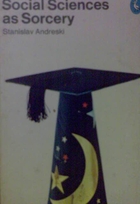My attention was captured by theologian/biblical scholar Jim West’s post reminding readers that
theology used to be called the ‘Queen of the Sciences’.
I’m not sure if that was meant to be a nostalgic recollection of something he wished were still true or if it was an expression of sardonic humour.
In the days when theology was crowned with such honour the word for “sciences” meant something quite different from what it means today.
Scientia is also the historical source of our modern term ‘science’. But the medieval and the modern terms do not mean the same thing(s): there is some overlap in their meanings, but the differences in their meanings must be recognized as being as important as the areas of similarity. . . . .
Seven liberal arts:
3 of language –
- grammar, rhetoric, dialectic/logic
4 of number –
- arithmetic, geometry, astronomy, music
The kind of knowledge which was taught in cathedral schools, using the seven liberal arts, was known as scientia, that is human knowledge, knowledge about the world (at the theoretical level), and knowledge which can be shown to derive from firm principles.
For theology . . . was a matter of dialectical argumentation, not of insight gained by meditation, nor the decisions of episcopal or other authoritative sources. . . . For in this ‘theology’ mystery and revealed truth were to be investigated by the test of reason. This ‘theology’ was a new, God-centred subject, for which the seven liberal arts – and especially logic – were to be essential bases. Theology was the application of scientia to the understanding of the nature of God and of the Christian religion.
In the thirteenth century there was a faculty of theology only in Paris, Oxford and Cambridge. But whether or not there was a theology faculty at a given studium, everyone regarded theology as the highest faculty. Indeed they regarded theology as the Queen of the Sciences, and theology continued to be seen like this for the next 600 years. It was Queen because it dealt with the highest study available to man, and it was a Science (scientia) because of course, like the other scientiae, it dealt in theory and it was built on sure and certain principles.
French, Roger, and Andrew Cunningham. 1996. Before Science: The Invention of the Friars’ Natural Philosophy. Aldershot, Hants ; Brookfield, Vt: Routledge. pp. 4, 55, 57-58, 64


 Why is theology with its arcane scripts from ages long dead still even tolerated in twenty-first-century institutions of higher learning alongside geochemistry and biotechnology and disciplines that use synchrotrons and things? In Australia at least public universities rely on funding that is awarded in response to the research output that can be demonstrated to provide some
Why is theology with its arcane scripts from ages long dead still even tolerated in twenty-first-century institutions of higher learning alongside geochemistry and biotechnology and disciplines that use synchrotrons and things? In Australia at least public universities rely on funding that is awarded in response to the research output that can be demonstrated to provide some